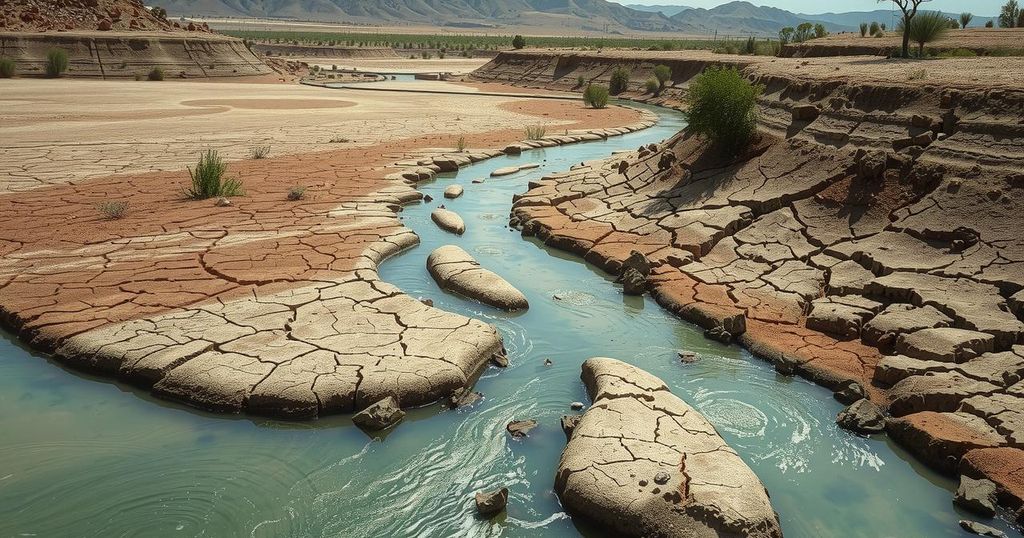In South Africa, water shortages and safety concerns are widespread, with 33% of urban and 65% of rural users regularly impacted by cut-offs. Legal amendments proposed to enhance licensing for water service providers are intended to improve accountability and water safety; however, structural reform is needed for meaningful change. Issues such as financial challenges, aging infrastructure, and coordination among government entities must be addressed for sustainable solutions.
In South Africa, water shortages and supply interruptions are prevalent, with 33% of urban users and 65% of rural users frequently facing water cut-offs. Alarmingly, nearly half of urban residents resort to boiling or treating their water before consumption. Despite the country’s water laws guaranteeing the right to sufficient water, a staggering 12% of the rural population lacks access to improved sources.
The Blue Drop report revealed that 46% of water supply systems cannot ensure the safety of their water, exposing users to waterborne diseases such as cholera and diarrhoea. Simultaneously, the Green Drop report highlighted critical issues with wastewater treatment facilities, indicating that almost two-thirds are at risk of contaminating local environments, further endangering water supplies.
The No Drop report noted that approximately 47% of clean water is lost due to issues, including leaking pipes and illegal connections. To address these challenges, the government plans to amend the Water Services Act, mandating that water service providers obtain licenses from the national Department of Water and Sanitation. These licenses can be revoked for non-compliance in delivering clean water.
Currently, municipalities have the option to appoint external providers, but most manage water services internally. The amendment aims to streamline the process of governmental intervention in cases of inadequate local providers, potentially involving private or non-profit entities. However, these regulatory changes may not yield immediate solutions.
Research from the South African Water Justice Tracker indicates that local governments need extensive reforms, including establishing sustainable revenue sources, improving infrastructure, and preventing infrastructure misuse. Without substantial transformations, legal amendments alone will not rectify the existing water service failures.
Licensing will require providers to demonstrate technical and managerial competency, and compliance with the South African National Standard for Drinking Water. If standards are not met, the Department of Water and Sanitation may revoke licenses. The potential benefits of licensing include increased accountability, enhanced water quality, and opportunities for private sector involvement, although this may lead to higher tariffs.
Nevertheless, fundamental issues persist. Many municipalities struggle financially, as many consumers cannot or will not pay for water services. Standards for free basic water supply also vary, leading to discrepancies in access across municipalities. Additionally, aging infrastructure has prompted some residents to seek alternative water sources, reducing municipal income.
A critical disconnect between water service planning and rapid urbanization exacerbates the crisis, along with a lack of coordination among relevant governmental departments. Issues of vandalism and infrastructure sabotage, particularly in rural areas, further complicate the scenario. It is imperative that municipalities prioritize the repair of leaking systems and that individuals also address their personal water waste. Effective reforms in governance are necessary to initiate a comprehensive improvement in water services.
In conclusion, South Africa grapples with significant challenges regarding water safety and supply, underscored by a lack of effective governance and aging infrastructure. Although the government’s proposed amendments to the Water Services Act aim to enhance accountability and standards for water services, these measures alone are insufficient. Comprehensive reforms addressing revenue sustainability, infrastructure maintenance, and coordination among relevant entities are essential to ensure equitable access to safe water and to resolve the underlying issues plaguing the water service system.
Original Source: theconversation.com




